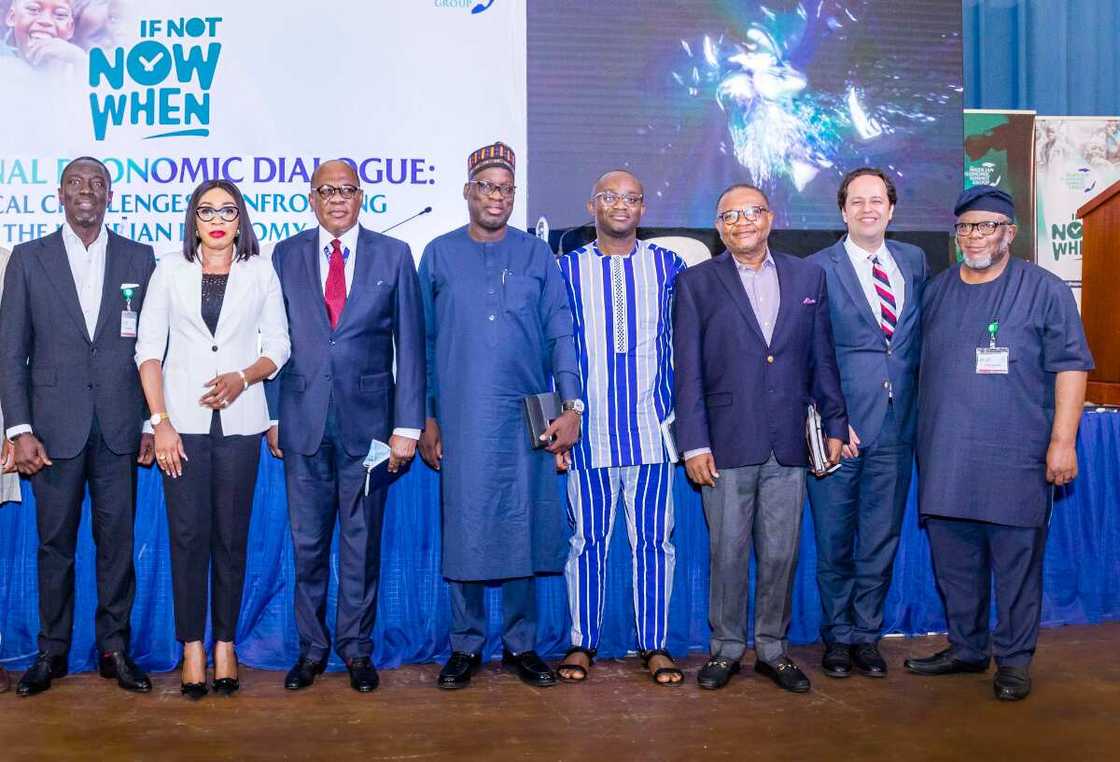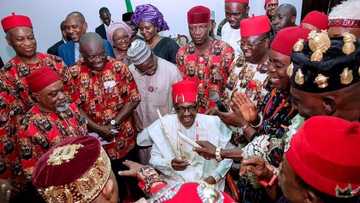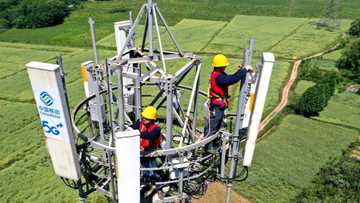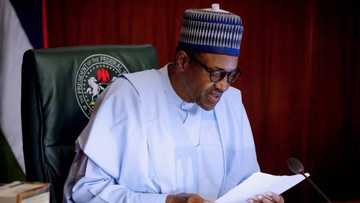2023: Six Economic Decisions Nigeria’s Next President Should Adopt in Office
- The dwindling economy of Nigeria has been a growing concern over the years as it has been hit with numerous lows across all sectors
- Ahead of the 2023 general elections the agitation for a visionary leader is gradually surging in a build-up to the polls
- But the main questions on the lips of economic experts remains; does any of the aspirants vying for presidency understand the economy
PAY ATTENTION: Click “See First” under the “Following” tab to see Legit.ng News on your Facebook News Feed!
FCT, Abuja - Nigeria’s think-tank and private sector advocacy group, the Nigeria Economic Summit Group (NESG) has forecasted a six-point agenda for prospective political aspirants vying for political offices at the forthcoming general election.
The economic group rolled out these agendas in Abuja on Friday, May 20 a national economic dialogue forum held at the Shehu Musa Ya’radua Centre.

Source: Twitter
Speaking at the forum, the chairman of NESG, Mr. Asue Ighodalo described the forthcoming election as critical to the future of Nigeria and its economy.
While stating our critical the next poll will be to Nigeria and Nigerians, he disclosed that Nigeria is suffering some critical challenges that have held the economy of the nation captive.
PAY ATTENTION: Follow us on Instagram - get the most important news directly in your favourite app!
Ighodalo cited issues like non-inclusive economic growth, macroeconomic instability, infrastructure deficit, human capital deficit, skills gap, national insecurity, and weak economic competitiveness.
Also speaking at the national economic dialogue, the former president of the Nigeria Bar Association (NBA), Dr. Olisa Agbakoba disclosed that the economic state of Nigeria requires a visionary president to reshape it and give it a new look.
Apapa port will generate N20bn daily if efficient, says Agbakoba
While reflecting on the rising debt of Nigeria which is estimated to be about N45trn, the legal silk said Nigeria has the resources and potential to clear off the deficits.
He cited the Apapa port in Lagos as a classical example of a national revenue-generating infrastructure that can help clear off the deficit.
Agbakoba said the Apapa port has the potential to generate N20bn daily if it were efficiently managed.
He said:
"We are not broke, we've got N17trn that is nothing for a national budget. My industry (the maritime sector) is completely omitted from the national development planning, yet just Apapa port, if it were efficient it will generate N20bn a day equal to N7.3trn a year that wipes out the so-called deficit."
Meanwhile, the Nigerian Economic Summit Group (NESG) at the national economic dialogue outlined the following as the six key agendas that can reshape the Nigerian economy.
1. Rethink what socio-economic development outcome means for an average Nigerian
This agenda bothers of reforming issues of human rights, education, healthcare, level playing field and job opportunities.
2. Rethink the role of market and the private sector
The NSG in its opinion advocate for appropriate pricing, limited or zero-subsidy and high private investment.
3. Deepen sectoral reforms to support broad-based growth and competitiveness
This aspect stems on multisector growth, value-added export and improved value-chain.
4. Integrated national and sub-national approach to economic inclusion and development
5. Pragmatic and actionable social sector reforms
This is a very important aspect that should be taken into cognizance as it requires funding for education, health for all and digital economy.
6. Develop workable and inclusive national security strategy in all dimensions
This is another very important entity in Nigeria that needs absolute overhauling and reform as it requires encouraging community-based policing and social cohesion.
Source: Legit.ng





